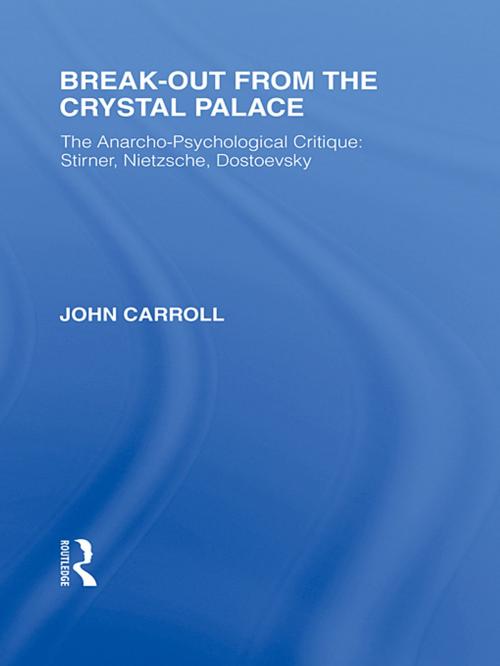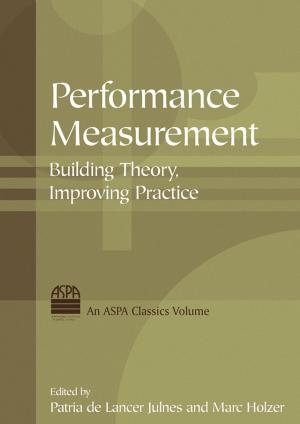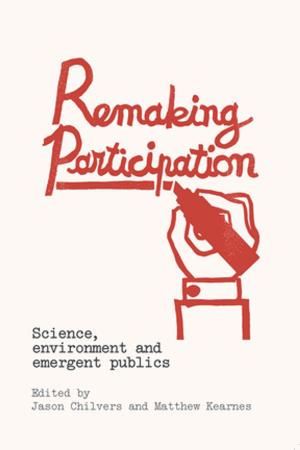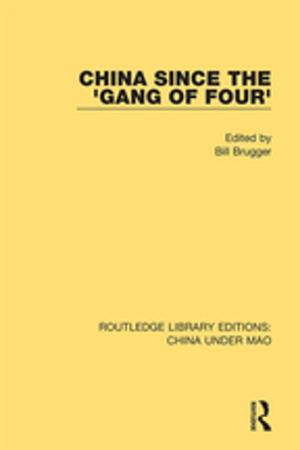Break-Out from the Crystal Palace
The Anarcho-Psychological Critique: Stirner, Nietzsche, Dostoevsky
Nonfiction, Religion & Spirituality, Philosophy, Free Will & Determinism, Good & Evil| Author: | John Carroll | ISBN: | 9781135175436 |
| Publisher: | Taylor and Francis | Publication: | November 1, 2010 |
| Imprint: | Routledge | Language: | English |
| Author: | John Carroll |
| ISBN: | 9781135175436 |
| Publisher: | Taylor and Francis |
| Publication: | November 1, 2010 |
| Imprint: | Routledge |
| Language: | English |
Before Marcuse and Laing, before Heidegger and Sartre, even before Freud, the way was prepared for the anarcho-psychological critique of economic man, of all codes of ideology or absolute morality, and of scientific habits of mind. First published in 1974, this title traces this philosophical tradition to its roots in the nineteenth century, to the figures of Stirner, Nietzsche and Dostoevsky, and to their psychological demolition of the two alternative axes of social theory and practice, a critique which today reads more pertinently than ever, and remains unanswered.
To understand this critique is crucial for an age which has shown a mounting revulsion at the consequences of the Crystal Palace, symbol at once of technologico-industrial progress and its rationalist-scientist ideology, an age whose imaginative preoccupations have telescoped onto the individual, and whose interest has switched from the social realm to that of anarchic, inner, 'psychological man'.
Before Marcuse and Laing, before Heidegger and Sartre, even before Freud, the way was prepared for the anarcho-psychological critique of economic man, of all codes of ideology or absolute morality, and of scientific habits of mind. First published in 1974, this title traces this philosophical tradition to its roots in the nineteenth century, to the figures of Stirner, Nietzsche and Dostoevsky, and to their psychological demolition of the two alternative axes of social theory and practice, a critique which today reads more pertinently than ever, and remains unanswered.
To understand this critique is crucial for an age which has shown a mounting revulsion at the consequences of the Crystal Palace, symbol at once of technologico-industrial progress and its rationalist-scientist ideology, an age whose imaginative preoccupations have telescoped onto the individual, and whose interest has switched from the social realm to that of anarchic, inner, 'psychological man'.















